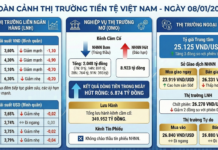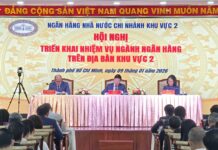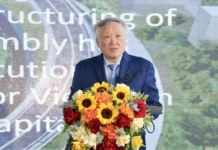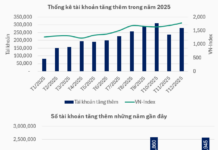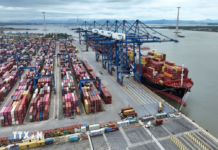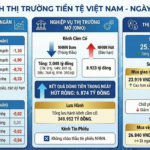On August 19, the inauguration and groundbreaking ceremony for projects and works to celebrate the 80th anniversary of the National Day of the Socialist Republic of Vietnam took place with 80 online and live broadcast locations.
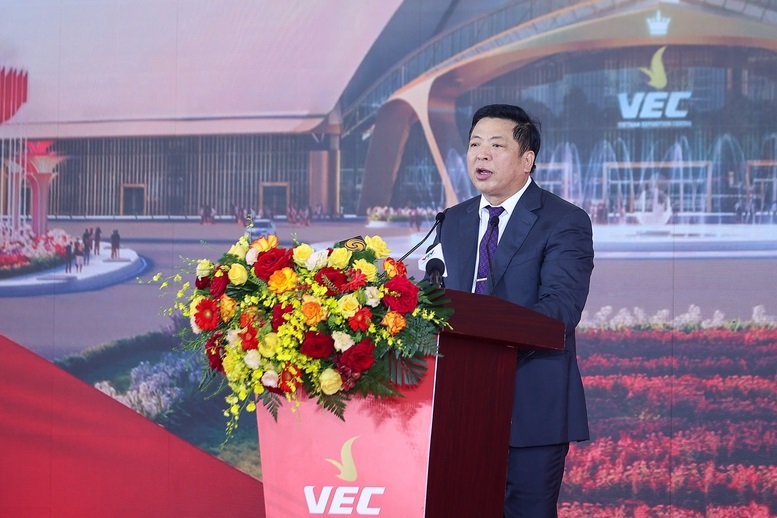
Minister of Construction Tran Hong Minh speaks – Photo: VGP/NB
|
250 projects with a total investment of more than 1.2 quadrillion VND
Speaking at the ceremony, Minister of Construction Tran Hong Minh said that in the period of 2021-2025, investment in infrastructure construction has been of particular interest to the Party and the State and identified as one of the strategic breakthroughs to promote socio-economic development and enhance security and national defense. Ministries, sectors, and localities have been entrusted by the National Assembly and the Government with important tasks, including industrial and energy projects and key transport projects such as expressways, aviation, seaports, urban railways, and high-speed railways…
Accompanying the whole country, ministries, sectors, localities, and the business community have made efforts to coordinate and implement key projects, determined to accelerate progress; inaugurate and complete many important projects, contributing to the country’s achievement of its set goals to enter a new era – the era of national prosperity, laying a solid foundation for the goal of achieving economic growth of more than 8% in 2025 and aiming for double-digit growth in the following years.
“With the efforts of ministries, sectors, localities, and enterprises, today across the country, we solemnly organize the inauguration and groundbreaking of 250 projects in 34 provinces and cities. Of these, 161 projects are under construction; 89 projects were inaugurated with a total investment of VND 1,280,000 billion, including state capital of 129 projects with VND 478,000 billion, accounting for 37%, and 121 projects with other capital of VND 802,000 billion, accounting for 63% (including 5 FDI projects with VND 54,000 billion), “Minister Tran Hong Minh said.
The Minister emphasized that these are all important projects with strategic significance; they are not only the result of hard work and overcoming difficulties but also symbolize the development aspirations and upward spirit of the entire nation. This is also vivid evidence of the country’s infrastructure development, demonstrating the determination of the Party, State, and people in building a strong, prosperous, and modern Vietnam.
Leading the way
In his speech, the Minister of Construction reviewed some typical and pivotal projects that played a “leading” role worthy of recognition.
Regarding expressways, since the beginning of 2025, the country has completed 455 km, bringing the total length of expressways in operation to about 2,476 km. It is expected that from now until the end of the year, about 700 km will be completed, aiming for 3,000 km by the end of 2025 and 5,000 km by 2030. For the coastal road system, 1,397 km has been put into operation, and 633 km is under construction, gradually completing the target of 2,838 km.
Today, six expressway projects with a total length of 364 km were inaugurated, and many other road projects were upgraded and expanded; especially the groundbreaking ceremony for the expressway from Ca Mau to Dat Mui, the last piece of the North-South expressway…
In terms of maritime and inland waterways, with more than 3,260 km of coastline and a dense network of rivers and canals, the country has great potential for developing the maritime economy and water transport.
Many key projects have been implemented, such as Cai Mep – Thi Vai port, Lach Huyen port, Song Hau canal, Cho Gao canal, and the promotion of investment in Can Gio port and Nam Do Son port…, contributing to the development of logistics and cost reduction.
The construction of Hon Khoai and Bai Goc ports is a strategic step, serving economic development, ensuring national defense and security, and contributing to the implementation of Resolution No. 36-NQ/TW on the strategy for marine economic development.
Regarding railways, two urban railway projects, Cat Linh – Ha Dong and Ben Thanh – Suoi Tien, and the Nhon – Kim Ma section have been put into operation, modernizing urban areas.
Today, the groundbreaking ceremony was held for the resettlement areas serving the North-South high-speed railway project and the Lao Cai – Hanoi – Hai Phong high-speed railway project, which are extremely important projects, creating a premise for the deployment of high-speed railway projects to meet the progress requirements.
Regarding aviation, many key aviation projects have been completed, such as the expansion of Tan Son Nhat and Noi Bai international airports…, and Long Thanh airport is being promoted to basically complete in 2025. Today, the construction of Gia Binh airport (grade 4E), Cat Bi T2 terminal, and the expansion of Ca Mau airport continue…
Regarding civil construction, compared to the beginning of the term, the urbanization rate has now reached 44.9% (an increase of 5.6%); clean water supply for urban residents reached 94% (an increase of 3%); the average housing area reached 26.6 m² per person (an increase of 2.2 m²),…
From 2021 up to now, the whole country has implemented 692 social housing projects with about 634,000 units, aiming for 1 million units for low-income people by 2030. The whole country has joined hands to eliminate temporary and dilapidated houses, with more than 334,200 units, which is a “special national project”, a “project of the Party’s will and the people’s heart”, and has been completed ahead of schedule, 5 years and 4 months earlier than the goal set out in Resolution 42-NQ/TW.
Inaugurated today is the National Exhibition Center, which ranks in the world’s top 10, is a super-scale and super-heavy structure, and was constructed in just over 10 months. In addition, many other representative projects were also inaugurated, such as Nghe An Oncology Hospital, Saigon International Financial Center; 21 social housing projects with about 11,500 units were started in many provinces and cities…
Regarding technological development, in recent years, the construction industry has made remarkable progress in science and technology and has mastered many modern technologies such as bridge construction, tunnel construction, intelligent transportation systems, and the gradual application of BIM technology and artificial intelligence…
In addition, in all regions of the country, there are many large-scale projects in the fields of agriculture, industry, energy, culture, and education that have been inaugurated and constructed, playing an important role in promoting sustainable development and improving the quality of life of the people.
A commitment to the future
Minister of Construction Tran Hong Minh said that most of the projects inaugurated today were implemented in a very difficult context, heavily affected by the COVID-19 pandemic, and fluctuations in material prices…
Following the spirit of the Prime Minister’s directive: “Everyone must unite for the common goal, for the benefit of the people, the country, and the nation”; “Harmonious interests, shared difficulties”, the construction industry is determined to complete the projects, which is an honor and a responsibility before the Party, the State, and the people.
The Prime Minister, ministries, sectors, and localities have launched emulation movements, both as encouragement and as a command to strive with high determination and great efforts, actively renew thinking and ways of working; at the same time, proactively overcome difficulties in materials and weather conditions.
Under the close direction of the Government, the Government leaders, ministries, sectors, and localities, tens of thousands of engineers and workers on construction sites have worked continuously with the spirit of “3 shifts and 4 teams”, “eat in a hurry, sleep in a hurry”, ready to work continuously during holidays and Tet to overcome harsh weather conditions to bring the project to the finish line on time and ensure quality.
“Today’s inauguration and groundbreaking of projects are of great importance, creating a solid premise for our country to enter a new stage of development – the ‘era of national prosperity’, contributing to realizing the goal of double-digit economic growth in the coming years. These projects are not only a symbol of development but also a commitment to the future. With the spirit of patriotism, let’s continue to lay solid bricks to build a strong, prosperous, and civilized country in the coming period,” emphasized the Minister of Construction.
– 13:00 19/08/2025
The Leading Airport Contractor in Vietnam Brings Cheer to Thousands in Dong Nai
A path to prosperity is now within reach for thousands of individuals in the vibrant province of Dong Nai. Imagine unlocking the potential to earn a substantial income and achieve financial freedom. This is not just a dream, but a tangible reality that is about to transform lives across the region. Get ready to embrace a future filled with endless possibilities and abundant prosperity!
The Gateway to Long Thanh Airport
Accelerating transport projects, including inter-provincial roads, highways, and metro lines, is vital to seamlessly connect urban infrastructure with Tan Son Nhat and Long Thanh airports.






